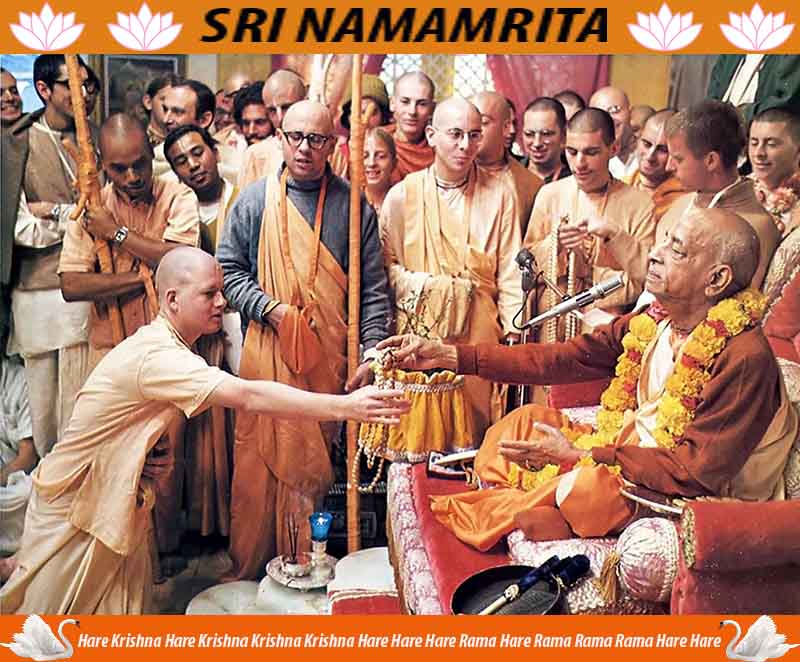
The Supreme Lord, Narayana, is worshiped in His incarnation as Lord Caitanya by sankirtana−yajna, the chanting of the holy names of the Lord:
[The sons of King Pracinabarhi to Lord Visnu]:
The Supreme Lord, Narayana, is present among devotees who are engaged in hearing and chanting the holy name of the Supreme Personality of Godhead. Lord Narayana is the ultimate goal of sannyasis, those in the renounced order of life, and Narayana is worshiped through this sankirtana movement by those who are liberated from material contamination. Indeed, they recite the holy name again and again. The fact is that by performing sankirtana−yajna one can immediately please the Supreme Personality of Godhead. Then Narayana Himself descends and immediately is present. In this age of Kali, Narayana is immediately present in the form of Lord Caitanya. Concerning Lord Caitanya, Srimad−Bhagavatam (11.5.32) states:
krsna−varnam tvisakrsnam
sangopangastra−parsadam
yajnaih sankirtana−prayair
yajanti hi sumedhasah
"In the age of Kali, intelligent persons perform congregational chanting to worship the incarnation of Godhead who constantly sings the name of Krsna. Although His complexion is not blackish, He is Krsna Himself. He is accompanied by His associates, servants weapons and confidential companions."
After all, human life is meant for pleasing Narayana, and this can easily be done by performing sankirtana−yajna. Whenever there is congregational chanting of the holy names of the Lord, Gaura Narayana, the Supreme Personality of Godhead in His incarnation as Lord Caitanya, immediately appears and is worshiped by sankirtana−yajna.
¯Srimad−Bhagavatam 4.30.36

